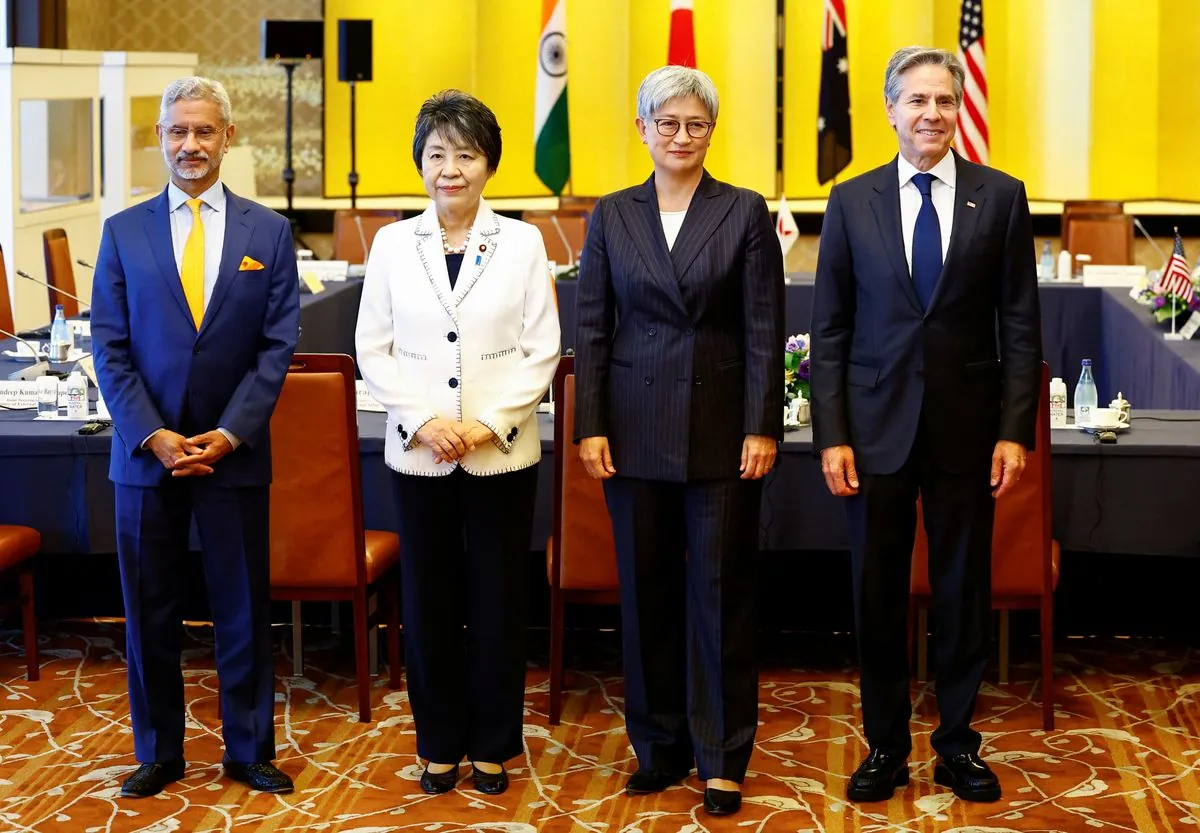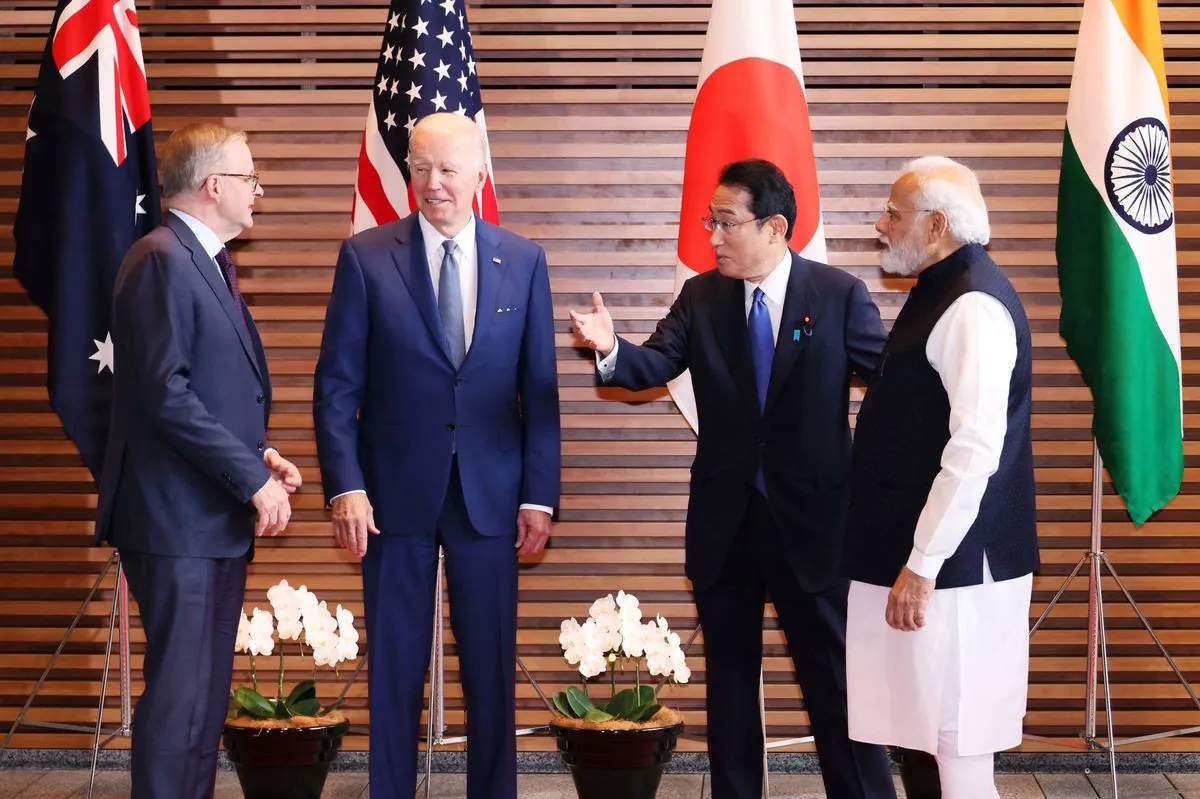Quad Ministers Convene in Tokyo, Addressing Regional Challenges
Foreign ministers of the Quad nations met in Tokyo, reinvigorating the alliance amid geopolitical shifts. The meeting addressed cooperation across the Indo-Pacific and ongoing regional issues.

The foreign ministers of Australia, India, Japan, and the United States, collectively known as the Quad, convened in Tokyo this week, injecting new energy into the alliance. This gathering marked a significant moment for the group, which has faced challenges in maintaining momentum throughout 2024.
The Quad, initially formed in response to the 2004 Indian Ocean tsunami, has evolved into a key player in Indo-Pacific affairs. However, busy political calendars, including India's elections and the U.S. presidential campaign, have hindered high-level meetings this year.
The Tokyo meeting produced a joint statement emphasizing cooperation in technology, disaster relief, climate change, and counterterrorism. Notably, the statement addressed collaboration across the entire Indo-Pacific region, bridging the traditional divide between Indian Ocean and Pacific Ocean interests.

This geographic expansion reflects changing strategic realities. China's growing naval presence in the Indian Ocean, including its base in Djibouti, has drawn the attention of Pacific-focused Quad members westward. Concurrently, India has strengthened ties with Southeast Asian nations, even supplying BrahMos missiles to the Philippines to bolster its position in the South China Sea.
"We reaffirm our commitment to a free, open, and inclusive Indo-Pacific, promoting cooperation from the Indian Ocean to the Pacific."
While the meeting demonstrated progress, questions remain about the next leaders' summit. The statement only indicated it would occur "later this year," potentially after the U.S. election.
In other regional developments, Bangladesh's government is grappling with the aftermath of recent protests. The administration's attempts to manage its image following a harsh crackdown have been largely unsuccessful, damaging its international reputation.
Meanwhile, Pakistan is seeking debt restructuring from major donors to meet International Monetary Fund conditions. Finance Minister Muhammad Aurangzeb publicly disclosed negotiations for rescheduling $12 billion in debt, signaling Pakistan's commitment to securing IMF assistance.
The ongoing Paris Olympics have seen limited participation from South Asian countries. India leads the region with 110 athletes and has secured bronze medals in air pistol events. Pakistan's Arshad Nadeem, who made history as the country's first Olympic athletics finalist in 2020, is set to compete in javelin alongside India's Neeraj Chopra.
In an unexpected move, India is considering increasing foreign direct investment from China, despite geopolitical tensions. This decision aims to address India's trade deficit and boost overall FDI, which saw a 62% decline in the last fiscal year.
As the Quad reaffirms its role in shaping Indo-Pacific dynamics, these diverse developments underscore the complex interplay of economic, diplomatic, and security concerns across South Asia.


































